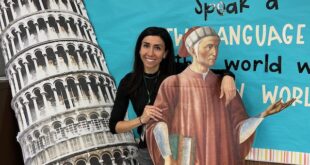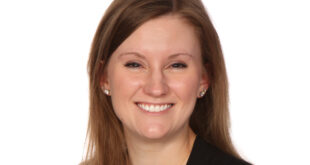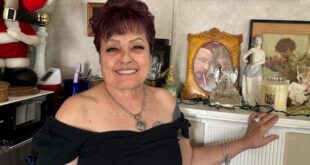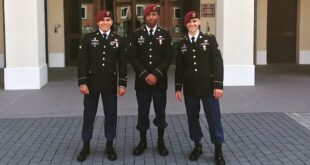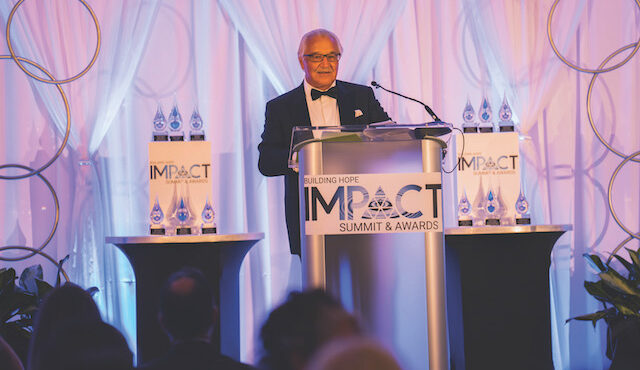
Boasting a successful corporate career in accounting and finance, S. Joseph Bruno continues to devote himself to a variety of charitable causes.
After emigrating from Italy at age 8, S. Joseph Bruno has had a highly successful career as a certified public accountant, entrepreneur and philanthropist.
He was a partner in two “Big 4” accounting firms and the CFO of a public company. He is the President and CEO Emeritus of Building Hope, a nonprofit that supports charter schools.
In December, he joined the board of directors of the Italian American Museum of Washington, and in January, he was appointed to the board of Building Hope, which also has an award named after him.
Bruno serves or has served on other nonprofit boards, including Leadership Greater Washington, the Washington Police Foundation, the Boys & Girls Club, Big Brothers, the Florida Consortium of Public Charter Schools, and Bluum. He is also the former chairman of the board at MedStar Georgetown University Hospital.
Now a Florida resident working part-time as a consultant, Bruno talks to Fra Noi about his passion for his heritage, and his drive to work and serve.
Elena Ferrarin: Tell us about your upbringing.
- Joseph Bruno: I grew up in Nicolosi, Sicily, three kilometers from Mount Etna. I still have family there and I visit every couple of years.
EF: What are your favorite memories?
SSJB: Going with my father to the (family) farm. I loved the prickly pears: That was my treat. And shaking olives off the trees. Playing soccer in the piazza, then getting gelato and watching the old men who played cards. I remember all the cousins gathering on Sundays for big meals and going out for passeggiate. I lived in Italy until age 8. I am more Italian than American. What I eat, how I dress, how I think, what I think, the cars I drive — it’s all about Italy.
EF: Do you remember your voyage to the United States?
SJB: We came in November 1956 from Naples on the SS Cristoforo Colombo and we settled in D.C., because my aunt and uncle lived there, and they sponsored us. My mother and I were sick the whole time. November was a rough time of the year to cross the Atlantic. My father spent 13 years in the Italian Navy –– he was in World War II –– so he was on deck the whole time.
EF: How did you adjust to the U.S.?
SJB: I had a tough time the first year, I did flunk third grade. It probably took me nine months to a year to learn English by watching TV and listening to music. I went to Catholic school, and I was always nervous about my eggplant sandwiches and my salami, while all the other kids had PB&Js. But shortly after we swapped, and then the other kids always wanted my sandwiches.
EF: You have worked from a young age, right?
SJB: My first job was at 10. I had a wagon with a stack of papers that I delivered to about 40 homes in the neighborhood, and I got paid in tips. I also washed dishes at a German bakery. I shoveled snow, and I delivered milk. In high school, I worked in the office from 7 to 9 a.m. answering phones, then again from 3 to 8 p.m. In college, I worked 36 hours per week in retail.
EF: Does work drive you?
SJB: Unfortunately, yes. I don’t have any hobbies. My parents gave the ultimate sacrifice: They left their family and their comfort zone for their kids. My father, until he died, didn’t really speak English. My mother left her two sisters and her whole family. I was the oldest and I wasn’t afraid to work. You create your own luck if you want to work hard.
EF: You’re a graduate of the University of Maryland. What did you study?
SJB: Finance. My father wanted me to be a doctor, but I didn’t do well in biology and chemistry. At the University of Maryland, you have to take accounting courses. I did well and proceeded with an accounting career.
EF: At one point you lived in Rome. What was that like?
SJB: I worked for two years in New York and three years in Rome. I took an intensive language program, because I only spoke dialect. It was great. I was with my people, and I was doing what I loved to do, auditing companies, in the city that I love the most. I got to know a lot of people, and it felt like home. They asked me if I wanted to stay, and if I didn’t have family here, I would still be there. But I came back to D.C.
EF: That’s when you got married, right?
SJB: Yes, I have been married for 34 years. My wife, Cynthia, is from Ohio, her parents are Italian. I have two daughters, Cinzia and Francesca.
EF: Your daughter Cinzia survived leukemia at age 10. How did that affect you?
SJB: My daughter had a 30% chance of living. I was devastated every time I heard that, but at the end of the day, that’s one of every three, and she was one of them. But at the hospital, I knew other kids who died. My wife was at the hospital for six months, every day. She never left.
EF: You are now on the board of the Italian American Museum of Washington. What does that mean to you?
SJB: So many people I knew have been a part of Italian-American history, from (Supreme Court) Justice Antonin Scalia to Nick Antonelli (a founding member of the National Italian American Foundation). To go in there, I feel like I am reliving my history in Washington, D.C. It’s beautiful.
EF: You serve on numerous nonprofit boards. Where does your drive to serve come from?
SJB: I was blessed with so much that I wanted to be able to give back as much as I can. I do it with my time and financially.
EF: Is there anything you are especially proud of?
SJB: I was on the board of the Consortium of Catholic Academies in D.C. and they needed philanthropy. I helped take eight inner-city Catholic schools and make them into charter schools. I am especially proud of that, because otherwise they would have closed.
EF: What are your plans for the future?
SJB: I am trying to get my Italian citizenship back. When my parents became U.S. citizens, they had to renounce my citizenship, because in 1956 there was no dual citizenship. (Italy allowed that in 1992.) I have a codice fiscale (Italy’s Social Security number) and I pay income taxes, but I can’t get my citizenship back. It breaks my heart, but I will keep fighting.
The article above appears in the April 2025 issue of the print version of Fra Noi. Our gorgeous, monthly magazine contains a veritable feast of news and views, profiles and features, entertainment and culture. To subscribe, click here.
 Fra Noi Embrace Your Inner Italian
Fra Noi Embrace Your Inner Italian


